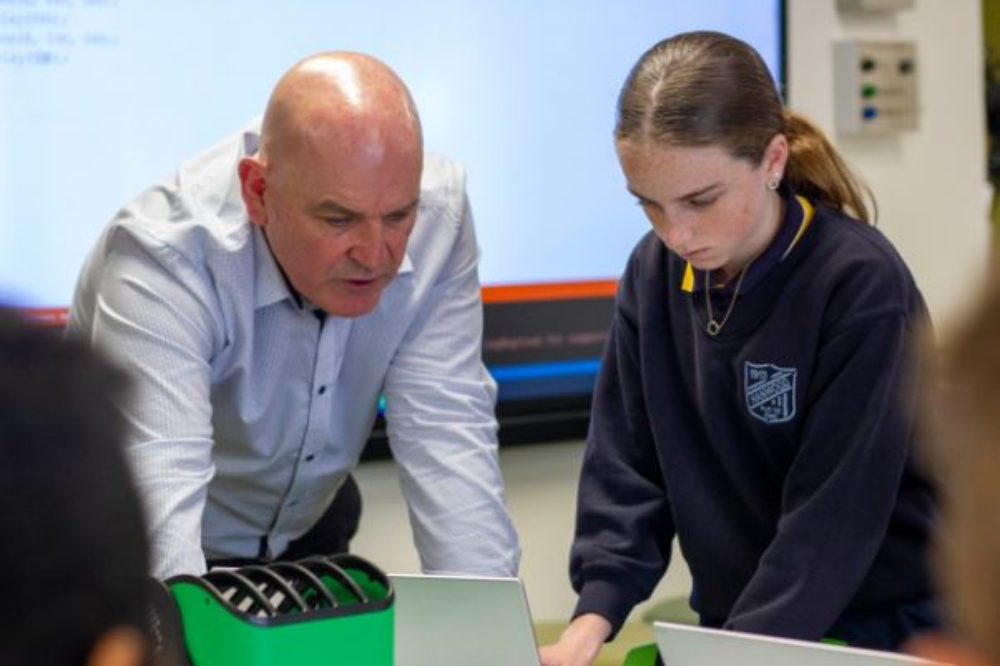
Image credit: Murrumbidgee Regional High School
Ian Preston's journey from the modest beginnings of being the first in his family to complete Year 12 to becoming a finalist for the Global Teacher Prize is nothing short of inspirational.
Preston’s innovative approach to education became evident early in his career when he pioneered 'telematics' through the Lachlan Access Program (LAP). This revolutionary program gave rural NSW students, who would otherwise have had to travel, access to Year 11 and 12, marking a turning point in educational equity for remote communities. Nearly three decades later, the LAP's influence endures.
Fast forward to 2020, leveraging his rich experiences, Preston introduced the NSW Virtual STEM Academy, based at Murrumbidgee Regional High School in Griffith.
What began as a modest trial involving eight students quickly expanded to serve 253 by 2022, and is set to double in 2023, extending its reach to international students. Notably, the program prioritises Indigenous and female students, boasting impressive participation rates of 20% and 49% respectively.
On 27 September, this work was recognised on the global stage when Preston was named one of 50 finalists for the Global Teacher Prize, run by the Varkey Foundation. The award – which this year saw more than 1,000 nominations submitted from teachers in 130 countries worldwide – grants US$1m to a teacher who has made an outstanding contribution to the profession.
In an interview with the NSW Education Department, Preston said it was an honour to be recognised for doing what he loved.
“I hope it encourages more people into teaching and, more importantly, public education in rural, regional and remote communities,” he said.
Director, Educational Leadership for the Griffith Network, Jayne Gill said Preston’s nomination was a testament to his dedication to his students and their futures.
“It’s beyond well deserved. We’re so lucky to have his invaluable knowledge as a resource for our students.”
Preston said a career highlight was the opportunity to give students from all backgrounds, particularly those in regional, rural and remote communities, a fair go at getting a quality education.
“The recognition inspires me to continue in the profession and continue to provide educational equity to public education students,” he said. “My work is not finished yet. I have so much more I want to achieve.”


